Energy Update
Odd Hoftun: a Nepali Hero

Odd Hoftun was born in an engineering family, in Norway, in the late 1920s. He grew up around a power plant which his father operated. He had early exposure to power plants and was aware of the multiple positive impacts they could have on rural communities. Norway was a poor and devastated country in the aftermath of the Second World War. Odd was witness to how broken economies could bounce back, with proper policies, infrastructure and skilled people. It was in these early years of his life that Odd internalized the importance of hard work, frugality, self-reliance, work ethics, etc.
After completing his engineering degree in his mid-20s, Hoftun and his wife Tullis decided to volunteer, and provide service to poor communities around the world. Although Odd wanted to go to Tibet, he found his way to Nepal. As a young electrical engineer, his first assignment in Nepal was to build the United Mission to Nepal (UMN) operated Tansen Hospital in Palpa District. When Odd came to Tansen in 1958, there were no road connections. He had to walk from the Nepal-India Border to Tansen, through Butwal, up and down the high hills. When he started working in Tansen, he quickly realized the lack of people with even basic technical skills, as well as lack of construction tools and equipment to carry out even the simplest tasks such as metal welding or carpentry. Odd found ways to teach the locals, learned to improvise, and learnt local methods that were workable.

After completing his work at Tansen, Odd and Tulis decided to remain in Nepal, and went on to establish the Butwal Technical Institute (BTI) with the aim of training local youths in technical trades to make them electricians, welders, carpenters, mechanics etc. He set up a system where the trainees would contribute to the market needs of the day, as part of their training. After there were abundant local skilled human resources, Odd went on to establish numerous companies and institutions.
He pioneered the construction of hydropower projects through Nepali companies as well as foreign direct investments. One could write volumes on each of these initiatives. All of Odd’s successes and failures as well as his trials and tribulations have been well documented in numerous books which have been written on his behalf or in which he provided invaluable insights to his works and accomplishments. In this article, however I would like to recount my memories of Odd as my boss and my mentor.

Unconventional Missionary
Odd Hoftun was often at odds with his fellow Christian missionaries at the United Mission to Nepal (UMN). Most foreign missionaries that then worked at UMN, then, believed that their mission should be to help the underprivileged and disadvantaged people of Nepal. Most of them wanted to limit their scope of activities to meeting those goals. They believed that this service should be provided in the form of charity through non-governmental organizations.
Odd however was of the belief that the downtrodden and the economically backward could be helped in the long run through skills training and making good jobs and other economic opportunities available. Contrary to his colleagues who believed in doing charity work in favor of the poor, Odd set up training institutions, and private companies to start industries and provide service to other industries and businesses.
The trainees in the training institute were made to contribute paid labor in local businesses as part of their trainings. The concept of helping the economically backward people through profit making companies and institutions was a revolution of a sort within UMN as well as in the development sector of Nepal.
Odd championed the concept of making the private sector involved in the generation and distribution of electricity, which even today is not commonly accepted by many international donors and people in governmental agencies in Nepal. In this regard Odd was truly an unconventional missionary who brought about meaningful change in thinking about sustainable development delivery and providing service to the poor.
Simple and frugal
During his early adulthood, in the difficult days following the Second World War Odd saw firsthand how the Norwegian communities had to cope with poverty and hardships, much like what he saw in Nepal upon his arrival. Having lived through this situation in his youth, Odd developed a keen sense of simplicity and frugality, as well as sense of service to the society. In Nepal, he maintained a hermit like lifestyle. He dressed simply and was always seen with a Nepali Topi. He could be seen moving around Kathmandu on his rusty bicycle, with one of his pant-cuffs pinned so it would not be caught in the chain of the bicycle.
I remember one time when we furnished his office in Butwal, which he frequented only several times a year, he kept on referring it to as his ‘luxurious’ office, when in fact the other staff were still complaining over the lack of work place amenities. Until then, Odd was used to sharing the open space under a staircase for office. After the upgrade he was given a room of his own, which he thought to be too luxurious.
He also deeply believed that too much money was a bad thing. In the book, Power for Nepal, (a biography of Od Hoftun written by Peter Svalheim) he says “money should be treated like poison. The ideal is to have too little money. The pinch triggers the imagination, and brings local resources an inventiveness into play.” He used to say we should have about 10 percent less money than what we really need. That way we could get the work done but it would keep us disciplined about our expenses.
He was a strong proponent of simple living. When travelling with him within Nepal, when we had to stop for lunch at local bus stops he always refused the meat dish. He said the meat dish was a rip off.
This principle of frugality also had its downside. When it came to allocating staff salaries, he was adamant about setting salaries at minimum levels. This did not go unnoticed by the employees. Often times this became a cause for some, including some of his most trusted employees, to quit working for him. Yet, many of us respected Odd’s views because Odd himself practiced this principle of frugality and he himself maintained a low cost life style.
Belief in institutions and people
In the book Power for Nepal, Odd says "Human capacity won't happen automatically as a result of a strategy. It cannot be accomplished by pouring in money. What is needed is people who have strong faith that something is important – people who are willing to go out and start a process, and have the patience needed to see the ship into port. For it is all about people." ('Power for Nepal').
Odd spent all his life in the process of capacity building in Nepal. Ever since he got to Tansen in the late 50s and until his retirement and even in his post retirement years, he sought ways to build local capacity in Nepal. In his early days in Nepal he built the Butwal Technical Institute to develop local skills in people.
He progressively incorporated companies to carry out design works for hydro projects, he built companies to build tunnels and other companies to fabricate steel parts for power plants etc. He also set up companies to construct wooden furniture, build bio-gas plants and manufacture plywood in Butwal. With all these activities Butwal turned into an industrial hub within a few decades after Odd started his activities there.
Presently there are 100s of hydro power companies that are either operating or building projects in Nepal. Almost all of those projects have someone that directly or indirectly got his/her preliminary training or exposure to the industry through one of Odd’s initiatives. Without Odd’s vision for developing human resources and institutions for small hydro development in Nepal, in no way could there be a robust hydropower industry in the country, as there is now.
Capacity building through technology transfer
Odd set up most of the institutions under the aegis of the UMN. But he had friends and acquaintances in Norway, US and Europe that he could call upon to provide the technical expertise and support when required. He had connections with old power plant owners in Norway that were willing to donate their old machines to Nepal, he was able to mobilize Norwegian volunteers that would collect and pack those machines and equipment to ship to Nepal.
He had connections in the Christian community through the UMN where he could seek experts for technical assistance when he required it. Most of these people shared Odd’s vision and mission and were available as volunteers. Odd also had connections within NORAD, the Norwegian Development Agency that financially supported many of his initiatives.
These resources and experts were critical for supporting many of the activities Odd had undertaken, may they be running the technical institute, or installing a power plant or obtaining grants for rural electrification. The people trained in Butwal or engineers that Odd hired in his companies learned from these foreigners. Many of the locally trained technical personnel today are experts capable of providing similar expertise to clients internationally.
Hard working and dedicated
Odd believed in hard work. One would hear again and again how Odd put in long hours every day. When I first went to Butwal to be interviewed by Odd, I got to know firsthand of his long work hours. I was put up at the UMN guest house the night before the interview. As I went to my small room (these rooms were hardly a few inches larger than the bed that was placed in them), for the night, I heard someone typing till about 11 p.m. when I dozed off.
I was again awakened by the sound of typewriter at around 4 a.m. Later I came to know that the person residing in the next room to mine was Mr. Hoftun and this was his normal routine. He was said to work 16 hours a day on a regular basis. Odd’s thinking was rooted in “…the period before, during and after the war, when austerity and hard work was the recipe for dealing with harsh environment”, (Power for Nepal).
Even after his retirement from Nepal, he kept on working on a regular basis for the development of Nepal. He had many plans. He worked hard to get BPC privatized and to secure Norwegian participation in the privatized company. He formulated a scheme to build the Melamchi Drinking Water Scheme with a Hydropower component attached to it. This was later caught up in politics within the funding agency and the Melamchi drinking water scheme was built without the hydropower component.
Odd was dedicated to his mission of capacity building as well as construction of hydro projects in Nepal. He travelled frequently to and from Norway to secure resources, (plant, equipment, experts, and money) in order to enable him to implement those plans. In the summer of 1992 I was in Oslo, as part of a training program. One night we got the sad news that the plane that was carrying Martin Hoftun, Odd’s son, had gone missing and it was feared that all the passengers were killed.
The next morning, we went to the office to express our sadness, only to learn that Odd had come in earlier than all of us. And he had gone to a meeting at some government agency to discuss the development of the Khimti Project. It was just another working day for Odd. We were in shock!!! This was the kind of dedication he had for his job.
Believer in small is beautiful, appropriate technology
Odd was a great practitioner of appropriate technology. He would adopt technology to match the needs of the local people and community. The rural electrification program he initiated around the Andhikhola Hydro Project in Syangja district demonstrated how appropriate technology could deliver development to people, who had been denied such privilege because the mainstream technology was not feasible for them.
Nepal Electricity Authority, the institution responsible for electricity distribution in the country relies on 11,000 Volt lines, which would be transformed to 400/230 Volts to make the household connections. But the problem with this was that the oil-filled transformers used to transform the Voltage were too heavy and could not be transported to villages far from the road-heads.
Odd and his team then designed a system with dry transformers that could be carried along the trails on the hills that would transform 1000 Volts to 230 Volts that could be connected directly to the households. Normal insulated cables could be used to carry 1000 Volts, thus eliminating the need to cut trees to extend the transmission lines. This way the connections became cheaper and feasible, enabling thousands of consumers in the area to have electricity, who without this technical intervention would have received electricity decades later!!
Similarly, as the engineer responsible for building the hospital in Tansen he redesigned the tin roofs so that they could collect water in a plastic lined cisterns under the floor of the Hospital. This way the hospital could have water available in the dry season, in water starved hill of Tansen.
There were numerous such schemes he designed he championed to enrich the lives of the rural poor of Nepal.
Odd also believed in taking small steps towards development prior to taking on the big challenges. For example, when he stared building the Tinau Hydro project, he first installed a temporary 50 kW scheme (1971). Later he extended the tunnel and installed 450 kW turbines (1976). Finally, as demand for power increased and the ability of his staff also increased, the project was fully optimized at 1050 kW (1978). It had taken 12 years to complete the project since work started, and 15 years, since the planning began, to fully complete the job!!!
With the workforce and equipment that were developed and secured from the Tinau Project, Odd ventured to develop the Andhi Khola Project (5.1 MW). He relied on manual labor and cost effective technology to build this project. It took over 10 years to commission this project, from its start. But in those 10 years, companies like Himal Hydro, Nepal Hydro & Electric, and Butwal Power Company had gained tremendous amount of experience and developed huge pool of human assets to design, build and operate hydro projects.
After the completion of Andhikhola Project (1991), these same companies were engaged to build the 12 MW Jhimruk Hydro Project in Pyuthan (1989-1994). Following its completion Odd was able to get international partners to develop the 60 MW Khimti MW hydro Project (1995-2000), with the involvement of the same Nepali companies that had built Tinau, Andhikhola and Jhimruk. So the team that started by building a 50 kW scheme, within three decades, had successfully participated in the construction of a 60,000 kW power plant. In every step of this growth Odd schemed to involve Nepali individuals and companies to the greatest extent possible.
Development oriented
Odd was worried about Nepal’ development. In the book Power for Nepal, Odd talks about how he worried about the social injustice in rural Nepal, especially relating to caste. He thought this would bring undesired rift in the society. He also believed Nepal’s development would have to be done through Nepali professionals and institutions. As said earlier he believed it was good to be cash strapped rather than to have excessive cash. He was not fond of donor money for development.
Although he initiated the Khimti Project, Odd was not happy with the way it ended. The project was funded in big part by the Asian Development Bank, and Norwegian multinationals were the major owners. Along with their funds, came their conditions and international standards on financing, technology etc., which Odd thought was inappropriate for Nepal. These conditions and standards were too expensive which would result in electricity being too expensive for consumption.
So he concluded that hydropower projects in Nepal would have to be built by Nepali professionals and institutions, and through Nepali banks, to enable the Nepali people and industries to benefit from them. But he was open to the idea of foreign investors building projects in Nepal and exporting that electricity to India to reduce Nepal’s trade deficit, after expanding its industrial base in Nepal and consuming as much as possible in Nepal (Nepali Times. 16 March 2023)
Open discussions and social research
Odd initiated a lot of activities for industrial and technical development in Nepal. However, he was also cognizant of the need to promote open discussions and develop research in the social sphere as well. After his son Martin died, he helped establish Martin Chautari as a discussion forum, for people of different backgrounds to come together and share their views on development.
Later, in the year 2002, the institution was registered as a separate NGO by a group of young Nepali academics and development practitioners. The organization now carries out research on social and media related issues, publishes its research papers, and mentors young university students so that they can be competent researchers. Martin Chautari has continued the tradition of weekly discussions, affectionately called Mangalbarey Discussions, for over three decades. After all, industrial and technical development efforts require rigorous social vetting to ensure that we are getting the kind of development our society requires. Today Martin Chautari is a well-established research institute in Nepal, with over 110 books published in the last two decades, and an impressive library of over 25,000 volumes of books to aid research works.
Finally,
It was an honor to work with one of the greatest minds and intellect in this sector. He was a tough boss, who worked harder than any of us. He was always thinking far ahead than most of his colleagues. He had a lot on his mind. It was not just one project or one company. He had a vision for the entire sector and even the country. Odd was truly a pioneer of Nepal’s small hydro power sector.
The most important lesson I learnt from him was that one needs to keep on moving ahead with one’s belief and passion even when success is not guaranteed or certain. As one that espoused his views and passion, I hope to be able to push his dreams a little further and achieve a little more, riding up from the strong foundations he has laid, and the wisdom he has imparted. Rest in Peace Mr. Hoftun. You will be long remembered for all you have done for Nepal!!!
The writer is an energy expert and Independent power producer, this short brief profile about the Hoftun is taken from 5th issue of Urja Khabar Semi-annual Journal Publish on 17th December, 2023
Conversation
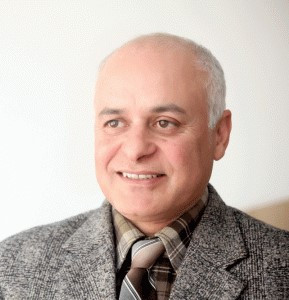
- Info. Dept. Reg. No. : 254/073/74
- Telephone : +977-1-5321303
- Email : [email protected]





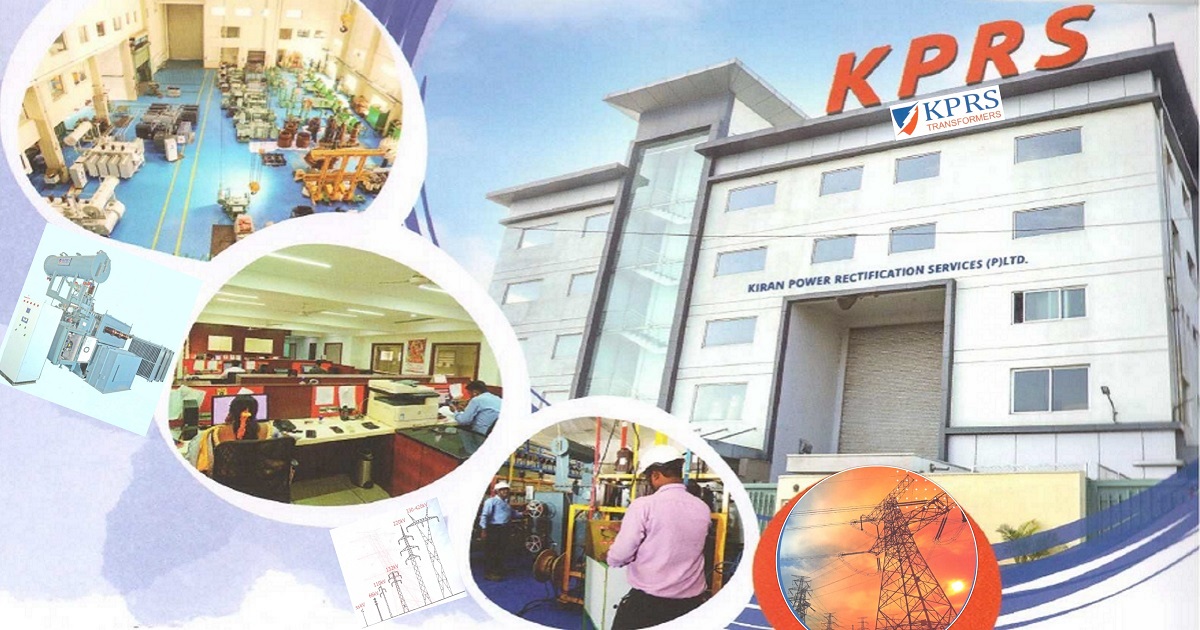
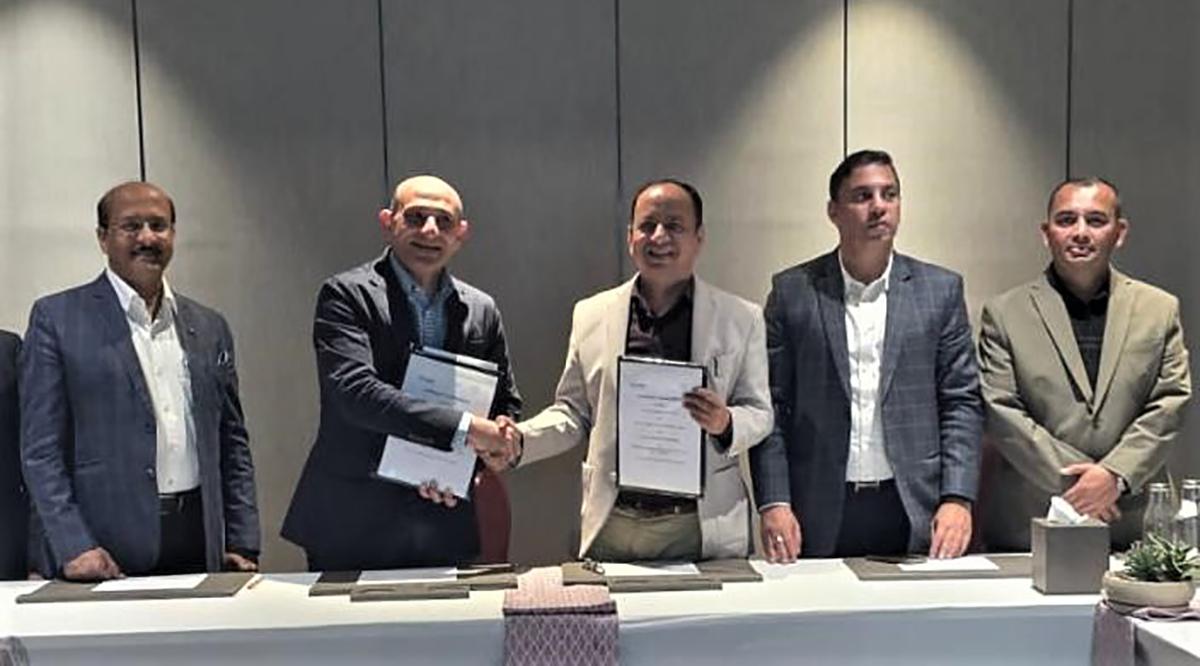




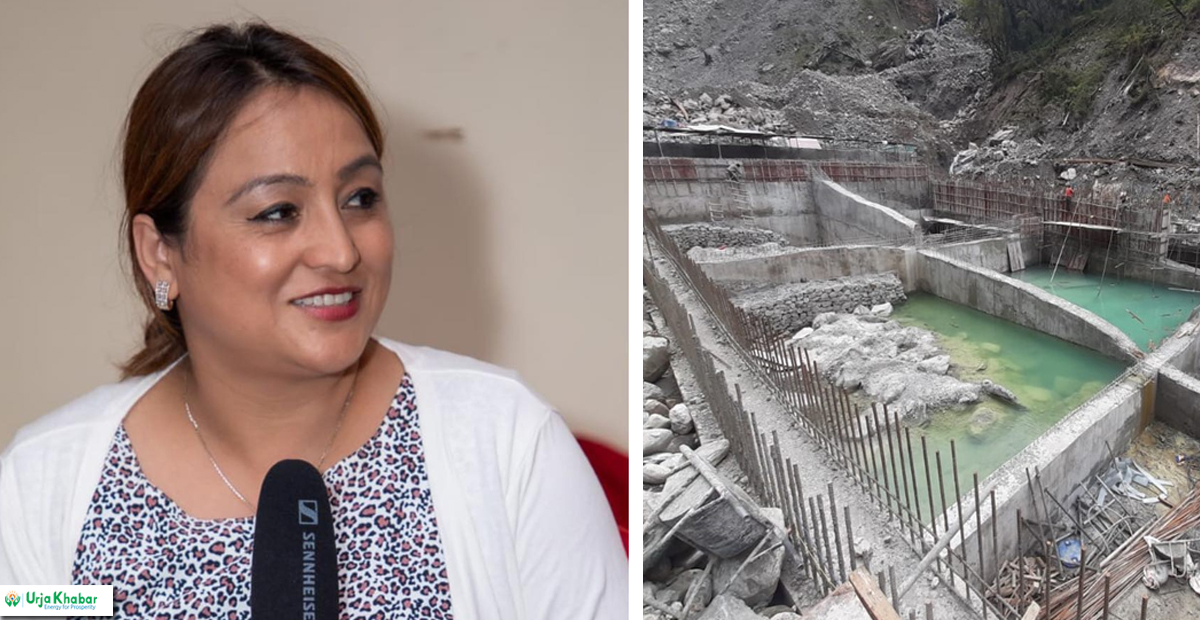
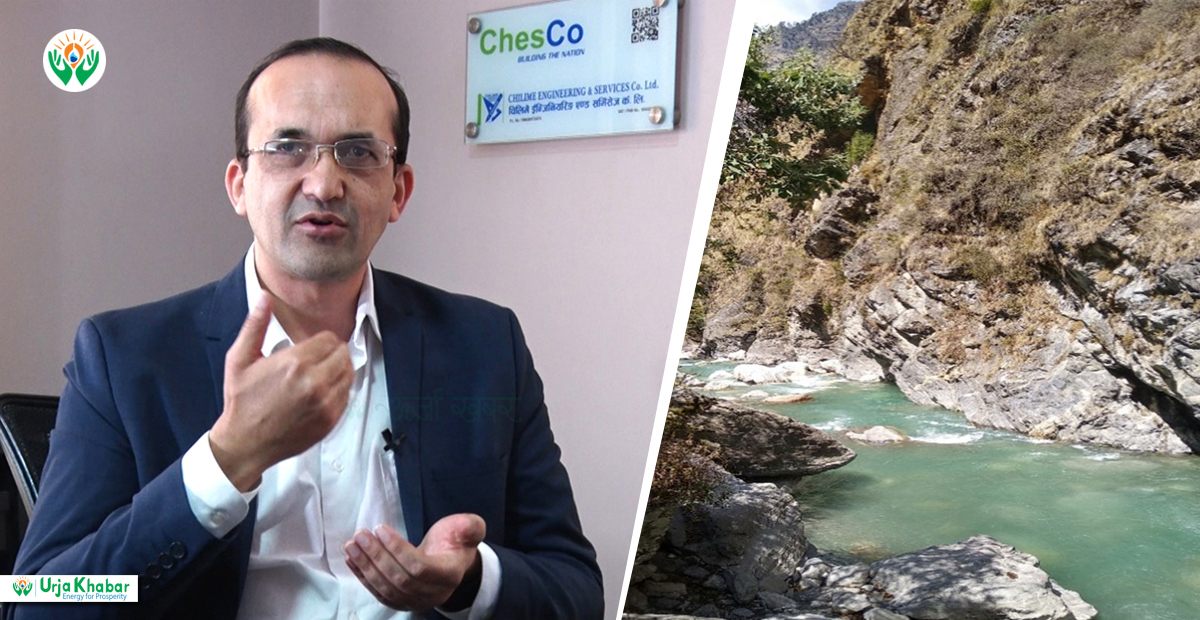
.jpg)